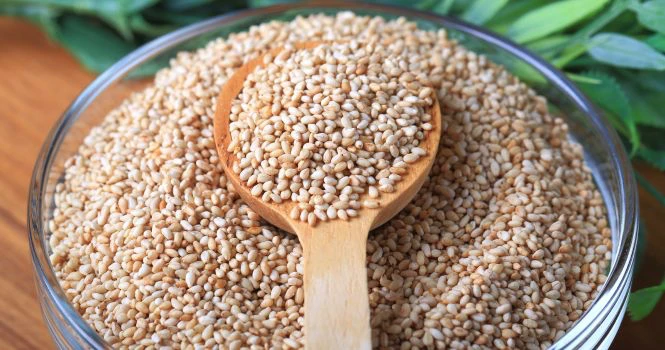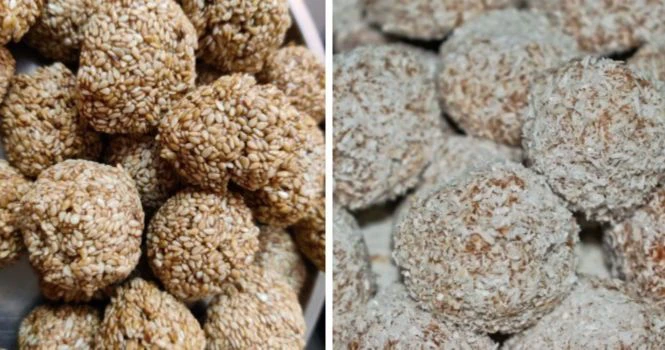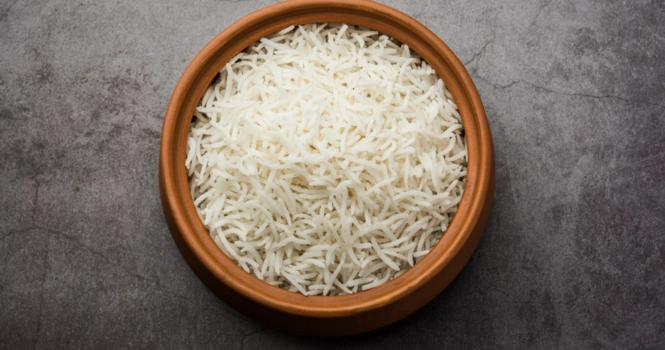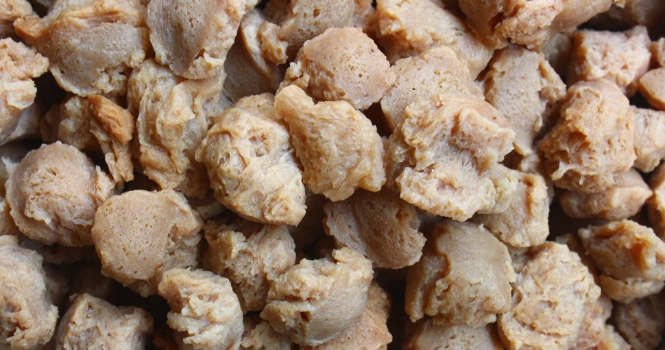Health Benefits of Sesame Seeds
Sesame Seeds are also called as
- Sesame
- Benne seeds
- Gingelly seeds.
Sesame seeds are known by different names in various languages:
- Hindi: Til
- Bengali: Til
- Tamil: Ellu
- Telugu: Nuvvulu
- Kannada: Ellu
- Malayalam: Ellu
- Gujarati: Tila
- Marathi: Til
What are Sesame seeds?
They are small edible seeds that come from the Sesamum indicum plant, which is native to Africa and India. They have a nutty, slightly sweet flavor and are commonly used in cooking and baking, particularly in Asian and Middle Eastern cuisine.

They are a rich source of nutrients, including protein, healthy fats, fiber, vitamins, and minerals. They come in a variety of colors, including white, black, and brown, and can be consumed raw, toasted, or ground into a paste called tahini. Sesame seeds are also used to make sesame oil, which is commonly used in cooking and as a dressing for salads.
How are they grown?
They are grown in warm and tropical regions, typically in areas with well-drained soil and plenty of sunlight. The Sesamum indicum plant is an annual crop that grows up to 6 feet tall and has small bell-shaped flowers that range in color from white to pink or purple.

The seeds are planted in rows, and the plants are spaced out to allow for proper growth and development. They require consistent moisture during the growing season, and farmers often use irrigation systems to provide water to the plants.
Once the plants have matured, the seed pods begin to dry out and split open, revealing the sesame seeds inside. The seeds are harvested by hand or using machines and are then cleaned, sorted, and packaged for distribution. Sesame seeds are an important crop in many countries, and their cultivation and processing provide employment for many people.
Nutritional Information
They are a rich source of nutrients and provide a wide range of health benefits. The nutritional information for a 1-ounce (28-gram) serving of sesame seeds:
- Calories: 160
- Fat: 14 grams
- Protein: 5 grams
- Carbohydrates: 6 grams
- Fiber: 3 grams
- Calcium: 27% of the Daily Value (DV)
- Iron: 25% of the DV
- Magnesium: 25% of the DV
- Phosphorus: 20% of the DV
- Zinc: 13% of the DV
In addition to the nutrients listed above, they also contain small amounts of vitamin B6, folate, potassium, and selenium. They are particularly rich in calcium, iron, and magnesium, which are important minerals for maintaining healthy bones and reducing the risk of osteoporosis.
The high fiber content in sesame seeds may also help improve digestion and promote feelings of fullness, making them a good addition to a healthy and balanced diet.
17 Health Benefits of Sesame Seeds
1. Good for bone health:
They are rich in calcium, magnesium, and other minerals that are important for maintaining strong and healthy bones.
2. May lower cholesterol levels:
Some studies have suggested that consuming sesame seeds may help lower LDL (bad) cholesterol levels in the blood.
3. May reduce inflammation:
They contain anti-inflammatory compounds, which may help reduce inflammation in the body.
4. May help regulate blood sugar:
They are rich in fiber and protein, which can help regulate blood sugar levels and reduce the risk of diabetes.
5. May help protect against cancer:
Some studies have suggested that the lignans found in sesame seeds may help protect against certain types of cancer, such as breast and colon cancer.
6. May help improve heart health:
They contain heart-healthy fats and antioxidants, which may help reduce the risk of heart disease.
7. May support healthy digestion:
They are rich in fiber, which can help promote healthy digestion and prevent constipation.
8. May help improve skin health:
They contain antioxidants and vitamins that can help improve skin health and reduce the signs of aging.
9. May help improve brain function:
They contain nutrients that are important for brain health, including vitamin B6 and zinc.
10. May help reduce anxiety and depression:
Some studies have suggested that sesame seeds may help reduce symptoms of anxiety and depression.
11. May help improve sleep:
They contain tryptophan, an amino acid that can help promote relaxation and improve sleep quality.
12. May help reduce inflammation in the joints:
They contain anti-inflammatory compounds, which may help reduce inflammation in the joints and reduce the risk of arthritis.
13. May help reduce the risk of asthma:
Some studies have suggested that consuming sesame seeds may help reduce the risk of asthma and other respiratory disorders.
14. May support healthy weight management:
They are rich in protein and fiber, which can help promote feelings of fullness and support healthy weight management.
15. May help reduce the risk of high blood pressure:
They contain minerals like magnesium, which can help regulate blood pressure and reduce the risk of hypertension.
16. May support healthy liver function:
They contain nutrients that are important for liver health, such as vitamin E and magnesium.
17. May support healthy immune function:
They contain nutrients that are important for immune function, including zinc and selenium.
How to use Sesame seeds

They are a versatile ingredient that can be used in a variety of ways in cooking and baking. Here are some ideas on how to use them:
- Sprinkle them on top of salads: Toasted sesame seeds can add a nutty flavor and crunchy texture to salads.
- Use them as a garnish: Sprinkle sesame seeds on top of stir-fries, noodle dishes, or sushi rolls for added flavor and texture.
- Add them to baked goods: Sesame seeds can be added to bread, muffins, or cookies to add a nutty flavor and texture.
- Make tahini: Tahini is a paste made from ground sesame seeds and can be used as a dip, spread, or ingredient in recipes like hummus or baba ganoush.
- Use them as a coating: Sesame seeds can be used as a coating for chicken, fish, or tofu before baking or frying.
- Make sesame milk: Sesame seeds can be blended with water to make a dairy-free milk alternative
- Use them in sauces: Toasted sesame seeds can be ground and used as a base for sauces like sesame sauce or dressing.
- Sprinkle on rice or noodles: Sesame seeds can be sprinkled on top of rice or noodles to add flavor and texture.
- Make sesame snaps: Toasted sesame seeds can be mixed with honey and formed into bars or balls for a sweet and nutritious snack.
- Use them in marinades: Sesame seeds can be added to marinades for meat or vegetables to add flavor and depth.
Side Effects
While they are generally considered safe for most people, there are some potential side effects to be aware of:
- Allergies: Some people may be allergic to sesame seeds, which can cause symptoms like hives, itching, and difficulty breathing.
- Digestive issues: Sesame seeds are high in fiber, which can cause digestive discomfort like bloating, gas, and diarrhea in some people.
- Interactions with medication: Sesame seeds contain compounds that may interact with certain medications, like blood thinners, so it’s important to speak with a doctor if you’re taking medication and want to consume sesame seeds regularly.
- Oxalate content: Sesame seeds are high in oxalates, which can contribute to the formation of kidney stones in some people who are susceptible.
- Potentially contaminated: Sesame seeds have been linked to bacterial contamination, so it’s important to buy high-quality sesame seeds from a reputable source and to properly store and prepare them.
![]()












